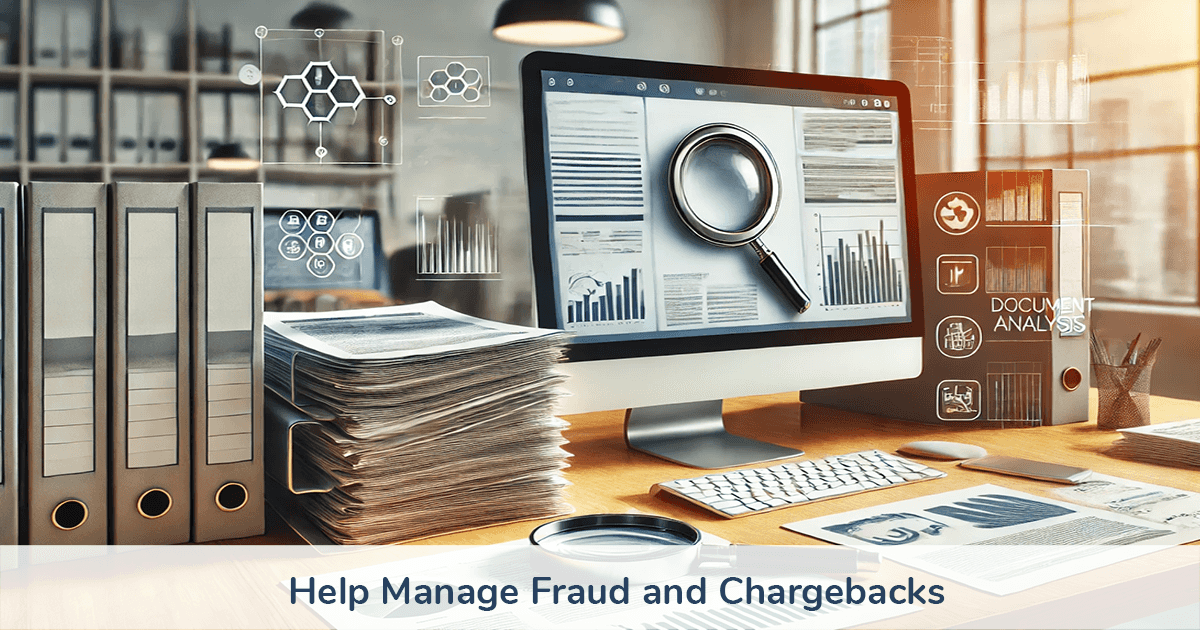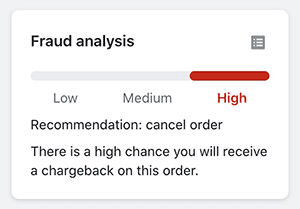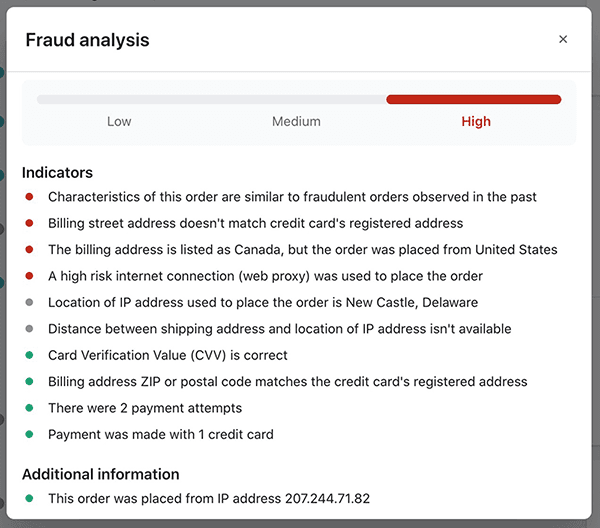
How to Deal with Fraudulent Orders and Minimize Chargebacks on Shopify
In This Guide
About fraudulent orders and chargebacks
Fraudulent orders are a pain all ecommerce stores doing volume have to suffer through.
I was a Shopify store operations manager for 7 years. I know first hand the frustration you feel dealing with fraudulent orders and chargebacks. I wrote this guide to help.
Some definitions:
- Risky order = A high or medium risk order according to the Shopify fraud analysis
- Chargeback = A reversal of a credit card charge (+ a fee) from a customer (or scammer) filing a dispute
- SOP = Standard Operating Procedure, a document used to create actionable steps for you and your staff
- Fraud Guard = A feature in the free version of Order Automator to help deal with fraudulent orders
Key Tips
Tips based on my experience managing Shopify stores, listening to store owners, and analyzing data:- Use the Shopify fraud analysis to identify high or medium risk orders
- Cancel high risk orders immediately, ask the customer to use a different payment method
- Investigate medium risk orders but do not cancel them
- Use Order Automator to automatically cancel or notify staff of high / medium risk orders
How to identify risky orders
If your store is on the Shopify plan or higher, or you're using Shopify Payments for credit card processing, you'll see a fraud analysis on every order:
This is Shopify's built-in fraud analysis tool that uses learning algorithms to give a risk evaluation + details:

I did an analysis on various stores to assess risky orders, here are some stats:
- Winning a chargeback is rare, many stores have never won a chargeback
- 20% - 100% of orders marked high risk either resulted in a charge back or were refunded
- 0% - 10% of medium risk orders resulted in a chargeback
- Some stores cancel all high risk orders immediately, and require the customer to use a different payment method, these stores have the lowest amount of chargebacks
In addition to the Shopify fraud analysis, you may want to investigate orders with these characteristics:
- Large orders (these are great customers if legit, so I would approach by emailing them to thank them and get to know them, assume that it's legit but if it arouses suspicion then possibly take action to cancel the order or delay fulfillment)
- Multiple failed payment attempts
- Address from a country that has a high percentage of fraudulent orders vs legit orders in the past
Once you've identified a suspicious order, take steps (see example in the next section) to prevent it resulting in a chargeback.
How to handle suspicious orders
Here's a common workflow you can use to minimize the risk of getting chargebacks.
-
If an order is flagged high risk, cancel the order. If it's medium risk, investigate before fulfilling the order
-
Contact the customer
-
Have them place an order with a new payment method
Pro tip: Use Order Automator to automatically send a notification to your staff or cancel risky orders. This is the Fraud Guard feature, included in the Free version of the app.
Example email template to send to the customer:
Hi I'm [name] from [store-name].
I wanted to give you a heads-up about your recent order #12345. Our automated security system flagged your order as having a potential for fraudulent activity so it was cancelled and payment refunded.
I apologize if this was a legit order. Sadly, we've been the victim of fraud in the past and need to have systems in place to prevent scammers and chargebacks from hurting our business.
If this was a mistake, please try placing your order again with a different payment method.
If you need any help or have questions, you can reply here.
Thank you, and please accept my apologize if this was an honest mistake.
If the person replies angry or combative it is likely a fraudulent attempt. If they seem normal and have a relevant story to address the fraudulent activity (for example they are traveling and buying a gift), then use your judgement to make the decision.
If they don't reply or attempt again, it was likely a fraudulent order and you can ignore that, the order has already been cancelled so no further action needed.
Another method I've seen is to leave the order open and contact the customer to ask for a selfie with their ID, and optionally require an agreement in the email that they will not file a chargeback with their credit card.
This can work too but also can seem intrusive, and is not as effective as cancelling and requiring a different payment form.
I actually had an instance where a high risk order came in, support contacted the customer to ask for ID, they gave it, then after receiving the product they filed for a chargeback. We lost the case even though we followed the recommended steps and proved it was them.
So I recommend just cancelling high risk orders and asking them to provide another payment form. Since implementing that strategy, the store has not had any more chargebacks from high risk orders.
How to Win chargeback cases on Shopify
Winning chargebacks is hard but you can win them, I have.
Here's an example of a chargeback that we won when I was running a Shopify store.
January 2nd: Order of 2 items was delivered to the customer.
February 8th: Customer filed a chargeback with the reason "product unacceptable".
February 10th: Support reached out to the customer to ask why they filed a chargeback, requested photos of the product, and reminded them our refund policy (full refund within 30 days, also if the product has any defects we replace it).
February 18th: No response from the customer still, their email address bounced, so we submitted a response.
The summary of the response submitted to fight the chargeback:
- Customer did not contact us about the issue, the chargeback is the first communication we received
- We emailed the customer (include screenshot) to ask about the problem and fix it but they did not respond
- Our website states that we offer free refunds within 30 days for any reason
- We are flexible with our return policy past 30 days given a reasonable request, the customer just needs to give a reason
April 24th: Chargeback case won and closed, funds returned to our account.
It took about 2 months but we won the case. 🥳
I think the key to winning a chargeback is having your terms on your site, and include a link (or bullet points) to those terms in the order confirmation email, then there is less room for dispute because the agreement is clear.
How Order Automator can help you
Use the free Fraud Guard feature to automatically cancel high risk orders and send notifications to staff (on high and medium risk orders) so they can cancel fulfillment and take any necessary actions.
In addition to this, Order Automator has a suite of features to help save you time and organize your orders.
- Auto tag orders and customers to organize + filter + export for marketing
- Auto fulfill line items (digital products, trigger 3rd party requests, etc)
- Amazon FBA integration in any marketplace to sync inventory + fulfill orders
- Auto send email notifications to vendors or staff based on order conditions
- Customizable solutions tailored to your store
Check it out here in the Shopify app store, at least give the free version a try to help you manage fraudulent orders.
We do customizations and build new features based on request, feel free to contact us if you want more features. 🧑💻
A call to action to Shopify
I've been an active participant in the Shopify forums for years, worked with hundreds of Shopify stores, and was a Shopify store business owner for 7+ years. I hear about fraudulent chargebacks constantly.
Chargebacks are common with any store doing volume. Most chargebacks for any legit, honest business are fraudulent, meaning that the customer places the order, receives the product, files for chargeback, wins and keeps the product.
The bank of the payment method is what determines the validity of a chargeback, not Shopify, and these banks almost always side with the customer, regardless of the reason.
This is stealing. This is fraud. This is a major problem.
I believe that Shopify, as the platform, has a responsibility to help protective store owners from fraudulent activity. While it doesn't make business sense for Shopify to absorb the cost of fraudulent chargebacks, Shopify is a publicly traded corporation that has more power than most stores on it's platform.
I request that Shopify use that power to make changes. Maybe it's lobbying for legislation, maybe it's working banks to create better solutions, I don't know because I don't have access to the inner workings of payment processing agreements. All I know is that this is unfair and stressful to Shopify store owners trying to run an honest business, and they need help.
Stores can mitigate risks by cancelling high risk orders using the steps above, but that applies mostly to professional scammers. Any normal customer can run a scam if they choose to, all they have to do is lie and say is they received a defective product, or did not receive it.
Sad that people are dishonest but that's the world we live in, this is why legislation or better bank relations seems to be the only real solution.
It's clear the current solutions don't work, because this is a regularly occurring forum topic for many years. Shopify, please help create a solution for our community.
Imagine being the hero that initiated better laws and severe punishment to scammers, reducing internet fraud in general, making the world a better place. Be that hero!
Resources
Shopify documentation about fraud analysis: help.shopify.com/en/manual/orders/fraud-analysis
Shopify documentation about chargebacks: help.shopify.com/en/manual/payments/chargebacks
Order Automator App: apps.shopify.com/order-automator
🧙♂️ If you liked this post check out our flagship app Order Automator.
The goal of Order Automator is to help you and your team save time and create new ways to improve your workflow. Most Shopify stores can benefit from at least 1 feature, even with the Free plan. 👍
 Author: Joe
Author: Joe









Any thoughts?